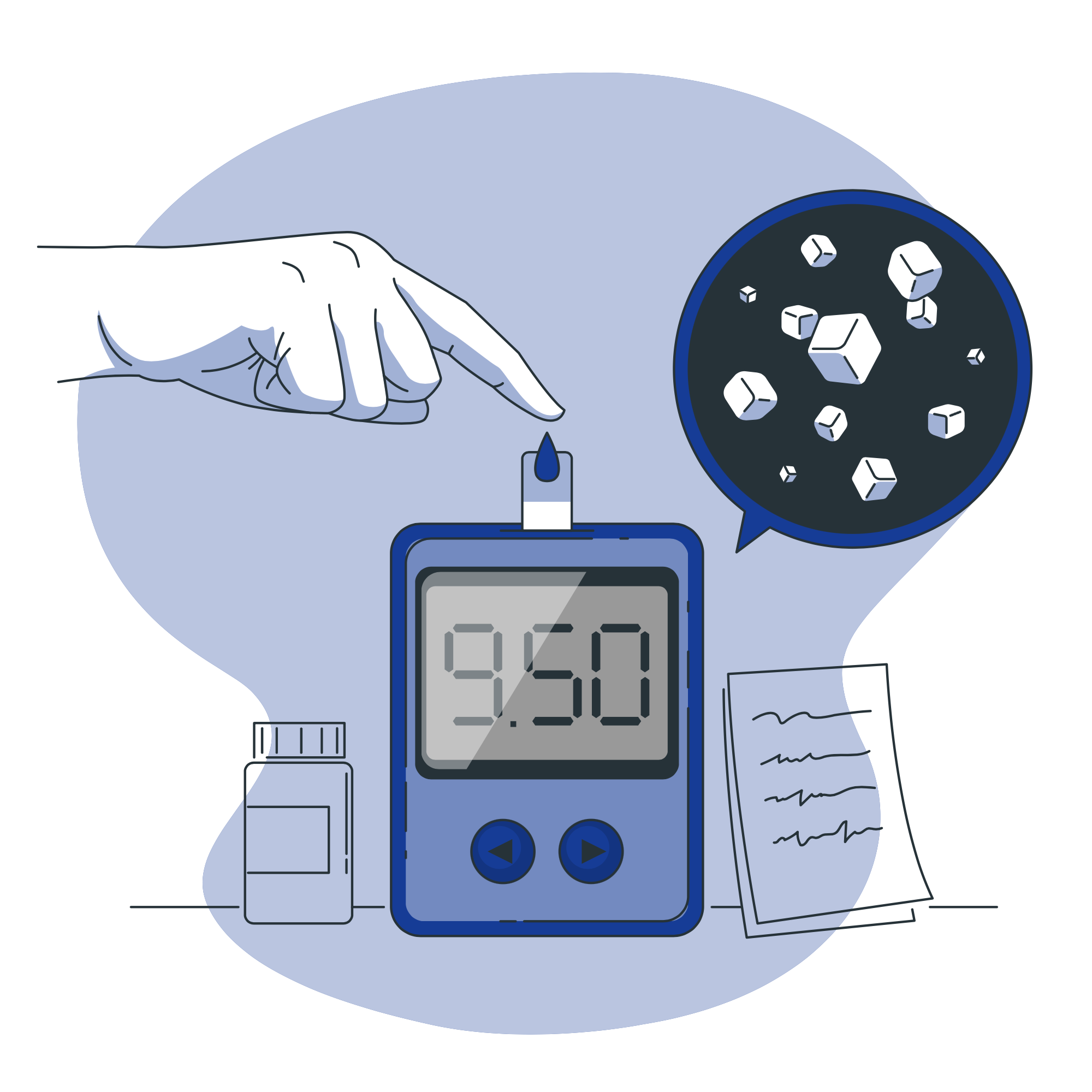Diabetes & Non-Alcoholic Liver Disease Research Study
UT Health San Antonio researchers are conducting a research study that will take place at the University Health Texas Diabetes Institute examining the role of mitochondria in patients with type 2 diabetes and nonalcoholic fatty liver disease. Help further diabetes research and join today!

Fast Facts
18-75 years old
diagnosed with type 2 diabetes
Compensation Provided
conducted in bexar county, tX
Study Background
The purpose of this research study is to investigate the role that mitochondria play in type 2 diabetes (T2D) and nonalcoholic fatty liver disease (NAFLD), a condition associated with fat buildup in the liver.
NAFLD results from the accumulation of fat in the liver, which, over time, may lead to liver inflammation. Though this is thought to be rare, over time, the inflammation could possibly lead to a buildup of scar tissue (called fibrosis), leading to cirrhosis (scarring of the liver caused by long-term liver damage) and possibly liver cancer in some patients.
Mitochondria are known as the ‘powerhouses of the cell.’ They are organelles that act like a digestive system, taking in nutrients, breaking them down, and creating energy-rich molecules for the cell. The function of mitochondria may be impaired in patients with T2D and NAFLD. This
may be especially important in the liver, which plays very important roles in these diseases.
In this study, investigators will study the function of liver mitochondria in T2D and NAFLD and will examine whether targeting mitochondrial function plays a role in the treatment of NAFLD.

Study Background
The purpose of this research study is to investigate the role that mitochondria play in type 2 diabetes (T2D) and nonalcoholic fatty liver disease (NAFLD), a condition associated with fat buildup in
the liver.
NAFLD results from the accumulation of fat in the liver, which, over time, may lead to liver inflammation. Though this is thought to be rare, over time, the inflammation could possibly lead to a buildup of scar tissue (called fibrosis), leading to cirrhosis (scarring of the liver caused by long-term liver damage) and possibly liver cancer in some patients.
Mitochondria are known as the ‘powerhouses of the cell.’ They are organelles that act like a digestive system, taking in nutrients, breaking them down, and creating energy-rich molecules for the cell. The function of mitochondria may be impaired in patients with T2D and NAFLD. This
may be especially important in the liver, which plays very important roles in these diseases.
In this study, investigators will study the function of liver mitochondria in T2D and NAFLD and will determine whether targeting mitochondrial function plays a role in the treatment of NAFLD.
Additional Information

You may qualify for this study if you meet the following criteria:
- 18-75 years old
- Diagnosed with type 2 diabetes
- Not taking anti diabetic medication other than metformin (glipizide, glyburide, glimepiride), or willing to pause medication for the duration of the study
If you decide to participate in this study, you will be asked to attend 14 study visits in total. The first 3 visits are for screening prior to randomization. Participants will be randomly assigned (like flipping a coin) to a treatment (pioglitazone) or placebo group. Pioglitazone is an FDA-approved medication that is used with a diet and exercise program, and sometimes with other medications, to treat type 2 diabetes.
The treatment period lasts 4 months, with follow-ups every 4 weeks. After the treatment period, screening visits will be repeated to assess the post-treatment changes, and patients will be given results that can be discussed and used for future treatment plans with a primary care physician.


